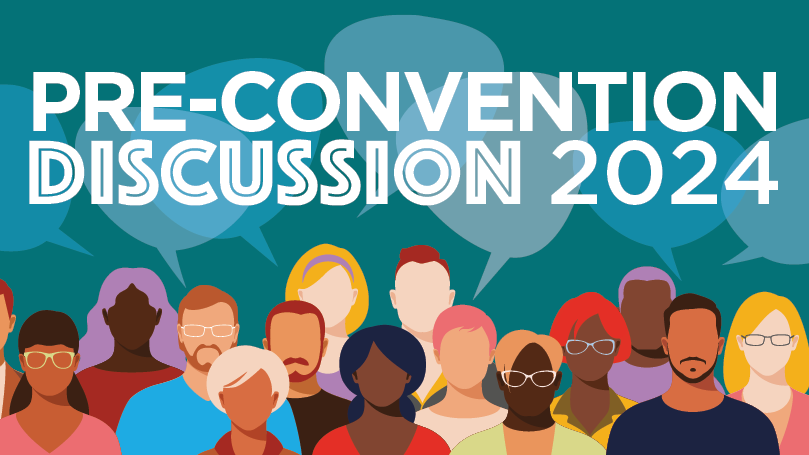
This piece is a contribution to the Pre-Convention Discussion for our 32nd National Convention. During Pre-Convention Discussion, all aspects of the party’s program, strategy, and tactics are up for consideration and debate. The ideas presented here are those of the author or authors alone, and do not necessarily reflect the positions of the Communist Party USA, its membership, or their elected leadership bodies. — Editors
Our 105 year old party has been enjoying an amazing growth spurt for several years now. This has been made possible in part by the opening up of online membership recruitment. We notice that the online joiners are mostly young people, but there is also a lack of racial, ethnic and gender balance among this cohort.
In many cases, large numbers are coming to us in districts, or in areas of the country where there is as yet minimal or no district organization (or in other cases, a district organization has not existed for some time).
This means that there is not an adequate supply of cadre level leadership in those areas to handle this new membership bounty.
To be clear: The large number of new joiners is a huge opportunity for our party and a guarantee of our future. But it also presents us with challenges we must overcome. If we don’t deal with these challenges, this opportunity for unprecedented growth, in our numbers and our contribution to the struggle, may be lost.
We are trying to meet this challenge at the national level, for example with the excellent webinars produced by the CPUSA Education Department, with the wonderful Little Red Schoolhouse etc.
But by themselves, they do not guarantee adequate growth (numerically but more in terms of political effectiveness) of our clubs and districts. And without that, our political effectiveness in mass work is diminished.
To do effective mass work requires leadership at the base level, in communities and workplaces. And it needs to be focused on the specifics of each local situation, in addition to being well grounded in Marxist-Leninist theory, for each specific situation is likely to be different in minor or major ways that are relevant to the development of tactics of struggle.
For example, in some districts labor laws are more favorable for workers than they are in others. Different sectors of the working class may have different characteristics and priorities. Local politics may be different from one community to another. Tactics are never “one size fits all.” This is why cadre level leadership is needed at the base level, especially when working with so many brand new party recruits.
What is a cadre? The great Argentine-Cuban revolutionary Ernesto “Che” Guevara provides this stirring definition: A cadre “is an individual of ideological and administrative discipline, who knows and practices democratic centralism and who knows how to evaluate the existing contradictions in this method and to utilize fully its many facets; who knows how to practice the principle of collective discussion and to make decisions on her/his own and take responsibility in production; whose loyalty is tested, and whose physical and moral courage has developed along with her/his ideological development in such a way that she/he is always willing to confront any conflict and to give her/his life for the good of the revolution. Also, she/he is an individual capable of self-analysis, which enables her/him to make the necessary decisions and to exercise creative initiative in such a manner that it won’t conflict with discipline.”
For our purposes, the essential skills needed by cadres include:
- Basic skills of interpersonal communication.
- Interviewing and assessing new applicants for membership. This includes assessing the strengths and weaknesses of each applicant, so as to know how to work with them in mass settings.
- General skill in communication with members and the public.
- Security consciousness, and ability to deal with dangerous situations as they arise
- Analytical skills; ability to use Marxism-Leninism to guide clubs and districts through tactical planning and action, and to evaluate results of that action
- Advanced online skills including ability to teach members how to acquire and use such skills.
- Group process skills including how to run a meeting, defuse logjams and conflicts etc., and ability to teach others how to do these things,
- Labor relations, union organizing, labor law
- Writing skills aimed at mass audiences, also skills in developing webinars, podcasts etc. and teaching others how to do so
- And much else, depending on the specific context.
Does the CPUSA have cadres, thus defined? Yes we do, but not in numbers proportional to our recent membership growth, and not deployed evenly. And where they are most needed is precisely in new or underdeveloped districts where lots of new people are joining, but there is as yet a lack of experienced leadership.
The authors of this essay are not the only comrades to have pointed out the urgent need for more cadres. But the real question is “what steps must we take to meet this need?”
First, we need an agreement that this should be a priority for action going forward. This requires a decision to that effect at the level of our national leadership.
Then it will be essential to involve all districts in a thorough, very specific discussion of the situations of their areas, including the clubs within them.
District leaders should be urged to identify specific members in their districts with the potential for being developed into cadres.
Then there should be a national plan, laid out and implemented, for preparing at least a couple of new cadres in each district, with numbers attached, proportional to the size of the district, The national and the district leaderships would then work out the training plans.



 Join Now
Join Now